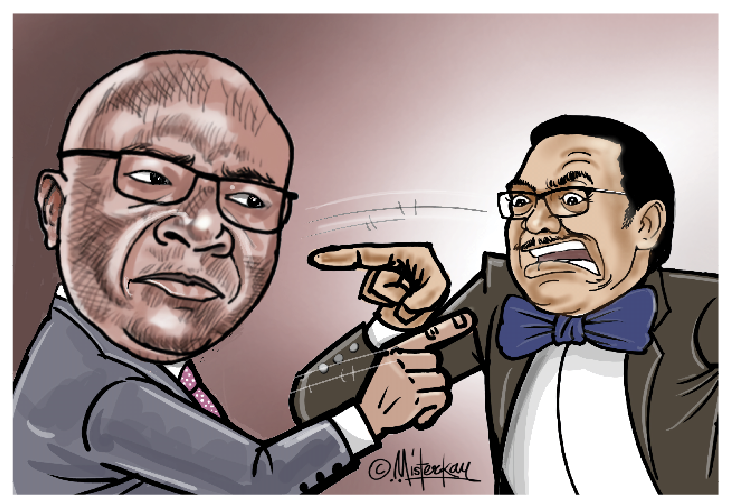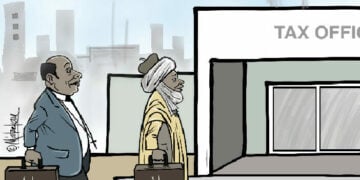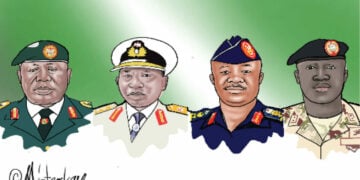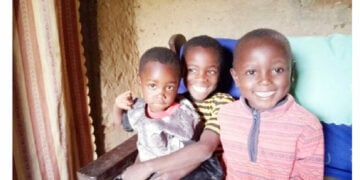The President of the African Development Bank (AfDB), Akinwunmi Adesina, ruffled presidential feathers on Monday when he said in a speech during the 20th Anniversary dinner of the financial services company, Chapel Hill Denham, that Nigerians were better off in 1960 than they are today.
The Special Adviser to the President (Information & Strategy), Bayo Onanuga, immediately disagreed, saying that Adesina used a narrow, perhaps one of the most contested metrics, to measure the country’s progress. Both Adesina and Onanuga were right and wrong.
What’s in a measure?
Gross Domestic Product (GDP), the most common measure of the size of an economy, measures the size of goods and services produced by that economy in a given period, usually annually.
For nearly 10 years after Nigeria rebased its economy in 2014 by including swathes of the economy previously excluded from the calculation, mainly IT, telecoms, and music, the country ranked as Africa’s largest economy.
We walked with a swagger and a spring in our steps. Until recently, when the tide turned and Nigeria slipped to number four, behind South Africa, Egypt and Algeria, any argument about the adequacy of GDP as an accurate measure of economic well-being would have been dismissed, especially in official circles.
One-handed economists
Yet, the GDP is accurate in what it measures, irrespective of Onanuga’s discomfort. Of course, economists, never one-handed as Harry Truman famously said, may disagree on the best model. Still, they have yet to find a more precise measure of a country’s total goods and services, a rough guide to economic status, than the GDP.
What Adesina did in his lecture, “Reimagining Nigeria by 2050,” was not only to compare Nigeria’s GDP in 1960 with what it currently is, but also to put that side by side with the performance of South Korea, which was at roughly the same position as Nigeria 65 years ago.
What he didn’t do, by the way, was to re-imagine what Nigeria’s GDP might have been today if he kept his promise as Nigeria’s Agriculture minister between 2011 and 2015, to popularise “cassava bread!”
GDP vs GDP per capita
The GDP per capita of all seven countries Adesina citedin his lecture were African, from Ghana ($2,260) to Botswana ($7,820), compared with Nigeria’s ($1,596). It’s not unusual that whereas Nigeria’s economy is thefourth largest on the continent, its GDP per capita is lower than Ghana’s, for example.
While the GDP measures the total volume of goods and services produced, GDP per capita divides the volume by the population. Regarding manufacturing, a key GDP component, Adesina mentioned Malaysia and Vietnam, which started in the same place as Nigeria, but have left us far behind. These examples are uncomfortable, but true.
The GDP is measured in the currency of the country in question, but converted to US dollars when comparing the value of the goods and services produced between or among nations. That means after the naira devaluation by 250 percent, for example, Nigeria’s GDP ranking was bound to fall.
Low or high?
Are there countries with relatively high GDP per capita and yet a low standard of living? Yes. Equatorial Guinea and Gabon, for example, have relatively high GDPs due to oil wealth and small populations, but score low on most quality of life indicators because of poor governance and weak institutions.
And vice versa, low-GDP countries like Costa Rica and Portugal have a higher standard of living because of strong social programmes, good education and safety measures. Yet of the 20 countries with the highest GDP by the IMF 2025 projections, there is none with rampant poverty.
Beyond measure
Onanuga was right to contest the use of the GDP, because, to modify Albert Einstein, some things count that cannot be counted by the GDP – things like health, education, equality, governance, trust, and the quality of life. Onanuga listed a few things in his rejoinder, such as road infrastructure, which he said Adesina’s paper had omitted.
It did not. It emphasised GDP as a measure of performance, and we may disagree with the adequacy of this metric. However, the paper also strongly argued that aggressive and well-thought-out investment in infrastructure such as power, health, agriculture, seaports, and airports with a clear and transparent governance structure can guarantee Nigeria a secure future.
Are you better off?
With two years to the next general elections, I understand Onanuga’s concern that a portrayal of Nigeria’s long-gone past as better than its present is politically fraught. Elections have been lost and won on the fundamental question: Are you better off than you were four years ago?
However, Adesina’s views about Nigeria in 1960 will not matter to voters in two years because they will not hold the government of President Bola Ahmed Tinubu accountable for the time when Nigeria’s population was around 45 million and each of its three main regions enjoyed relative autonomy. Nor will they hold Tinubu responsible for 2050 because he would not be in office then.
In two years, Nigerians will ask themselves if their lives have improved in the last four years of the Tinubu government. It’s a question that strips economics of its jargon, whether GDP or HDI, and goes straight to bread-and-butter issues.
In the long run…
If President Joe Biden’s claim of a better life for Americans, even though essentially statistically correct, was insufficient to save him, then the Tinubu administration must roll up its sleeves.
GDP or not, Onanuga’s rejoinder will not avert the question of whether Nigerians feel better off. This government’s difficult decisions in the last two years should have been taken decades ago. The consequences of these decisions, however, especially the removal of the petrol subsidy and floating the exchange rate, not to mention the insecurity, have made many worse off.
Of course, Abuja can argue that the hardship is global and that the temporary difficulties will produce a better future. But as economists say, in the long run, we’re all dead.
Living it!
For the government to be rewarded for the courage of its tough decisions, the public, especially voters, does not need to be reminded that they now have more phone lines or road networks as a measure of progress. Many more must be able to live above the current misery of begging to recharge their phones, to pay fare for unsafe roads, or ransom for loved ones.
Nigerians are poorer today, not because comparative GDP figures from 1960 tell them, or because a more robust indicator could have made any difference. They live it.
The currency has been devalued by 250 percent in two years, the value of savings has depleted, the cost of essential services has risen by 113 percent, and the cost of borrowing has increased from 18.5 percent in 2023 to 27.5 percent because of the crowding-out effect.
White cat, black cat
Whatever the indicators, this is the reality Nigerians are living, the story Tinubu was voted to change. Governors are getting more money and should account for it. Still,with more of them defecting to the ruling All Progressives Congress (APC), the party will have much more to answer for what it is doing to lessen the collective misery. Also, the significant issues in the macroeconomy(primarily inflation) and security are squarely on the Federal Government’s plate.
There’s still some time to fix things, but like DengXiaoping said about dealing with an emergency, it’s not the colour or description of the economic indicator that matters, as long as the cat of our current misery catches mice.





